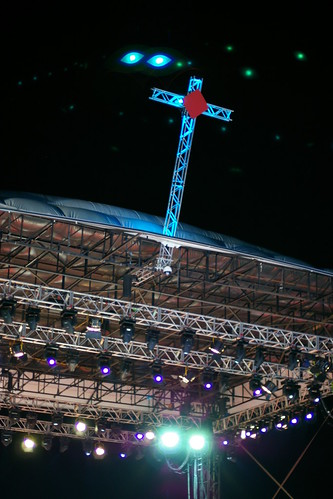Here is the News item in our local paper, the Evening Sentinel, about our parking problems. You can get to the original here: http://tinyurl.com/8xfm8b.
On Christmas Eve the congregation of Sacred Heart Roman Catholic Church, in Jasper Street, Hanley, discovered an unexpected present from council parking officials who had been busy while they were inside for a special evening mass.
Parish priest Father Peter Weatherby has vowed to fight Stoke-on-Trent City Council, saying the parking wardens' actions lacked Christmas spirit.
And he is urging his congregation to refuse to pay the fines and appeal to the authority to scrap the tickets as a gesture of festive goodwill.
He says people visiting the church had parked on nearby streets or council-run surface car parks, which become free after 6pm. The tickets were issued just moments before the parking restrictions were lifted.
He said: "I am livid. We are calling on those issued with tickets not to pay the fines but to appeal.
"What is especially annoying is that mass began at 5.45pm, just 15 minutes before surface parking becomes free in the city centre, so most tickets must have been issued just minutes before traffic charges for surface parking in Hanley were lifted at 6pm.
"All the shops were shut. Clearly the wardens must have known the cars belonged to families worshipping in the church."
Church wardens reported that a vehicle carrying several traffic wardens arrived after a neighbouring business made a complaint about an employee's vehicle being blocked by churchgoers.
Father Weatherby said: "The church wardens tell me that the scene appeared like a raid. The fines were being issued to worshippers, just as we were singing In The Bleak Midwinter inside the church.
"It is such a shame that Christmas began for so many people like this.
"We had our largest Christmas congregation for many years, almost 400 people.
"We are the only mainstream Christian church left in the city centre, yet action like this will drive good people away. This is so sad."
Father Weatherby has written a letter of protest to the city council.
He is also calling upon all those who received a ticket to appeal the fine and contact the parish so a full list can be drawn up of those affected.
At his services over the weekend, he mentioned the tickets from the pulpit, telling all his congregation members about the campaign.
Parishioner Paul Bradley, aged 43, from Trent Vale said: "There have been parking problems here for years, but you would think a bit of commonsense would prevail at Christmas.
"Many people coming to church on Christmas Eve are not regulars and they obviously did not know about the parking restrictions."
Julie Gallagher, aged 32, of Tunstall, was given a £35 ticket on Sunday, December 21, when she parked outside the church.
Julie, a customer relations manager, said: "To be fair I was just a little bit over the lines but there was nowhere else to park.
"I had three young children with me and my gran, so I didn't want to park miles away.
"I have paid it but I sent them an email saying I was at church and I hope they have a merry Christmas."
Another parishioner, who asked not to be named, said her son-in-law received a ticket on Christmas Eve.
She said: "My daughter and her husband had come up to see us from Birmingham, and he discovered it when he came out of church.
"It's not just that it's unfair, it's immoral – they're just trying to extract money from people any way they can."
A city council spokesman said: "Penalties are issued when vehicles are parked in violation of the restrictions. On-street parking restrictions apply until 6pm. Motorists who are issued a penalty are welcome to appeal the decision and details of how to appeal are on the back of the ticket."
Traffic wardens at the city council are meant to give motorists five minutes grace before issuing a ticket to allow people who have gone to get change for a parking meter to return to their car.
I am concerned that most comments made to the story on the paper's web site either engage in an attack against religion in general or on Muslims in particular. I have even had one (former) local councillor ring up to tell me that traffic wardens are instructed not to issue tickets to those parked outside the local mosques. As I tried to explain to her, it is hard to prove a negative - that someone has not received a ticket. Anyway, the photo makes me look rather imperious - 'he surveys all he commands' - or - 'they shall not pass'. Mmm.








 Firstly, there has been a rather devastating fire in one of the churches in the deanery. It seems that it was caused by intruders. Perhaps they didn’t mean to cause as much damage as they did - but nevertheless the church is now gutted, the interior effectively destroyed, all vestments and hangings gone. For the community who worship there it is particularly devastating.This is one of half dozen churches in the deanery which is ‘under review’, and a decision has to be taken within three years whether to close it or for it to remain open. The fire hardly helps the community as they try to keep their building open for worship – and how can it now survive? And if the diocese decide to close it, how tragic that this may be the end to a place which for decades has been a place of faith and worship.
Firstly, there has been a rather devastating fire in one of the churches in the deanery. It seems that it was caused by intruders. Perhaps they didn’t mean to cause as much damage as they did - but nevertheless the church is now gutted, the interior effectively destroyed, all vestments and hangings gone. For the community who worship there it is particularly devastating.This is one of half dozen churches in the deanery which is ‘under review’, and a decision has to be taken within three years whether to close it or for it to remain open. The fire hardly helps the community as they try to keep their building open for worship – and how can it now survive? And if the diocese decide to close it, how tragic that this may be the end to a place which for decades has been a place of faith and worship.  And then, in rather stark contrast, I have, during this past weekend had the enormous privilege of conducting a wedding, then the next day celebrating mass, in a chapel 2000m above sea level on top of the mount
And then, in rather stark contrast, I have, during this past weekend had the enormous privilege of conducting a wedding, then the next day celebrating mass, in a chapel 2000m above sea level on top of the mount 


 I've not blogged for a few days. Several reasons. One is that the weather has been wonderful I my motivation levels for sitting in the study and typing away have receded. But there's a better reason - I realise I have been doing a quasi-blog in writing in answer to thoughts and questions from some of the trainee teachers at
I've not blogged for a few days. Several reasons. One is that the weather has been wonderful I my motivation levels for sitting in the study and typing away have receded. But there's a better reason - I realise I have been doing a quasi-blog in writing in answer to thoughts and questions from some of the trainee teachers at 













 I remember September 1st 1980. That was the first day I began work as assistant manager at Martin the Newsagent, Congleton, Cheshire. And my first job? to arrange the display of Christmas toys, cards and decorations. I wasn't very good at display then, and I hadn't improved much when I started teaching on 1st September 1995.
I remember September 1st 1980. That was the first day I began work as assistant manager at Martin the Newsagent, Congleton, Cheshire. And my first job? to arrange the display of Christmas toys, cards and decorations. I wasn't very good at display then, and I hadn't improved much when I started teaching on 1st September 1995.